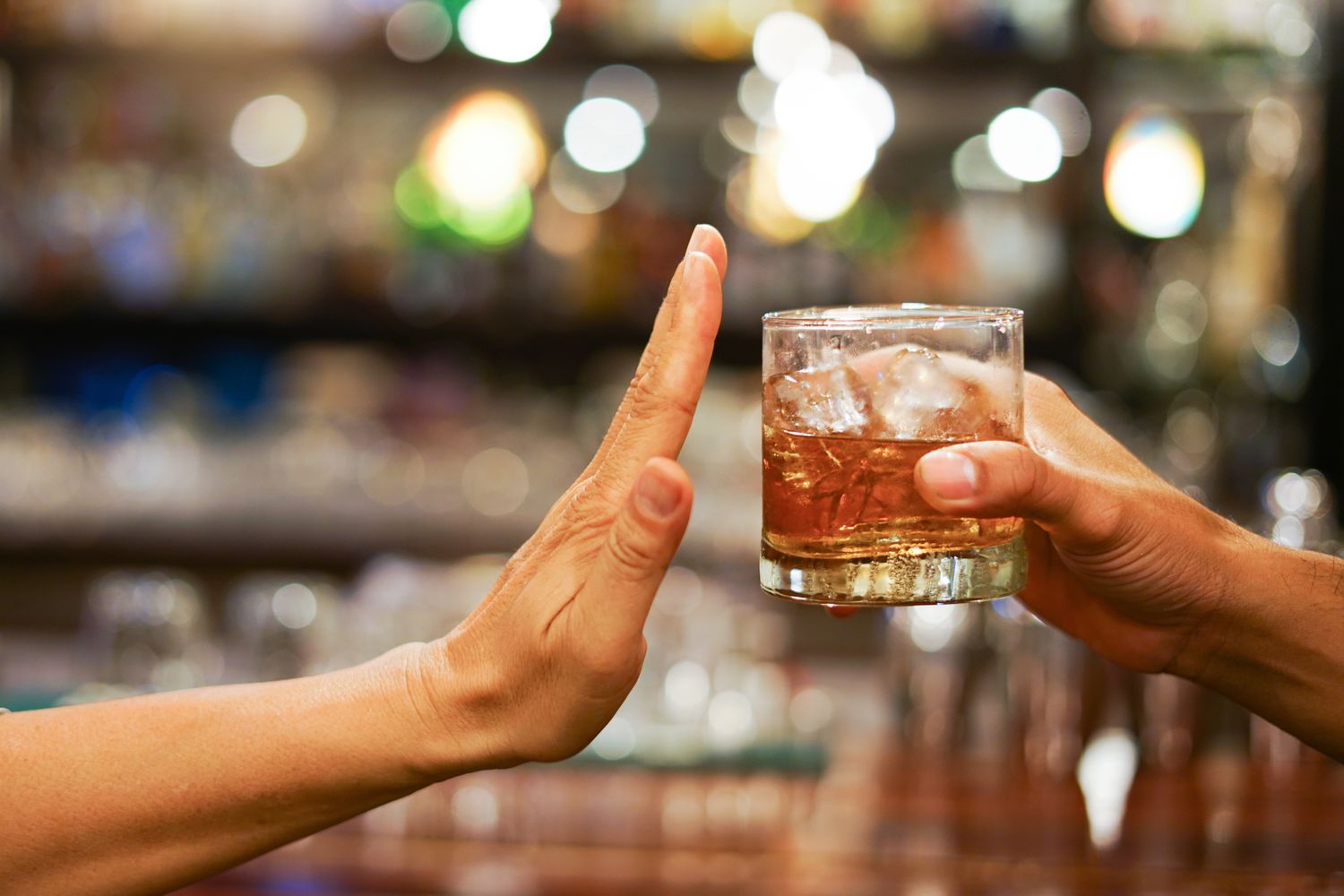If you like to have a beer after a hard workout, the alcohol might negate your efforts at the gym. Some research shows that consuming alcohol after strength training can interfere with muscle building and recovery, especially depending on how much and when you drink.
Is Alcohol Bad for Muscle Gains?
Strength or resistance training, like deadlifts and weighted squats, can help build muscle mass by creating tiny tears in the muscle fibers. The body repairs these tears by increasing protein synthesis, an adaptive process that helps muscles better handle physical stress over time.
In well-trained athletes, protein synthesis typically peaks about three to four hours after a workout, according to Benjamin Gordon, PhD, an instructional assistant professor of applied physiology and kinesiology at the University of Florida.
Drinking alcohol within an hour or two after a workout can blunt the protein response significantly, Gordon said. Alcohol can interfere with the mTOR pathway, which helps regulate muscle protein synthesis.
“If you drink after that peak window of protein synthesis, it is going to have less of an impact than it would if you work out and immediately start drinking following the exercise,” Gordon said.
Should You Skip the Gym After a Night Out?
If you have a big night out and drink more than normal, you may want to think twice about hitting the gym the next morning.
“If you’re going to go out and enjoy, you need to be prepared to hydrate really well over the next few days, and not do any kind of intense or performance-based exercise, at least for 48 to 72 hours, because it can take 72 hours before it gets out of your system,” Sarah Wick, RD, CSSD, LD, director of sports nutrition at The Ohio State Jameson Crane Sports Medicine Institute, told Verywell.
It is recommended that men consume no more than two drinks per day and women have one or fewer. A 12-ounce beer with 5% alcohol, a 5-ounce glass of wine with 12% alcohol, and a shot of liquor all count as one standard drink.
“The acute use of alcohol in your system, especially above the general guidelines or after a vigorous workout or conditioning session, can affect muscle coordination, building, repairing, and recovery,” Wick said.
Alcohol Is Not a Good Workout Recovery Drink
If you don’t drink enough water after exercise and jump straight to an alcoholic beverage, you may become dehydrated.
“All fluids count towards your total fluid needs for the day, except alcohol. It is the only exception. We’re definitely not rehydrating with that fluid,” Kelli Santiago, RD, CSSD, LD, a performance dietitian coach at University Hospitals of Cleveland, told Verywell.
You should also refuel with healthy carbs, like whole-grain bread or fruit, after a workout. Santiago said that although alcohol is a carbohydrate, the body metabolizes it more like a fat, so it doesn’t help the body recharge.
Some research also suggests that consistent drinking after strength training may reduce testosterone levels, which can impact recovery and performance.
Should You Quit Alcohol If You Want to Build Muscles?
Alcohol is a toxin, and it can harm many aspects of your health, including sleep, mood, the immune system, and heart muscles.
According to Gordon, if you only drink occasionally and avoid alcohol around your resistance training, but still don’t see muscle gains, it’s likely due to a factor unrelated to alcohol, such as nutrition or your workout plan.
Keep in mind that it can take over a month of regular strength training before seeing any major results.
What This Means For You
Occasional drinking likely won’t derail your fitness progress, but consistent post-workout alcohol use can slow down your results. Drinking alcohol right after strength training can interfere with muscle growth and recovery. To support your fitness goals, avoid alcohol within a few hours of working out, stay hydrated, and refuel with nutritious food.
Verywell Health uses only high-quality sources, including peer-reviewed studies, to support the facts within our articles. Read our editorial process to learn more about how we fact-check and keep our content accurate, reliable, and trustworthy.
Skinner J, Shepstone L, Hickson M, Welch AA. Alcohol consumption and measures of sarcopenic muscle risk: cross-sectional and prospective associations within the UK Biobank Study. Calcif Tissue Int. 2023;113(2):143-156. doi:10.1007/s00223-023-01081-4
Lakićević N. The effects of alcohol consumption on recovery following resistance exercise: a systematic review. J Funct Morphol Kinesiol.. 2019;4(3):41. doi:10.3390/jfmk4030041
Lopez P, Radaelli R, Taaffe DR, et al. Resistance training load effects on muscle hypertrophy and strength gain: systematic review and network meta-analysis. Med Sci Sports Exerc. 2021;53(6):1206-1216. doi:10.1249/MSS.0000000000002585
Levitt DE, Luk HY, Vingren JL. Alcohol, resistance exercise, and mTOR pathway signaling: an evidence-based narrative review. Biomolecules. 2023;13(1):2. doi:10.3390/biom13010002
Centers for Disease Control and Prevention. About moderate alcohol use.
Centers for Disease Control and Prevention. About standard drink sizes.
University Hospitals. Alcohol after exercise: not a good mix.
National Institute on Alcohol Abuse and Alcoholism. Acohol’s effect on the body.
Gardiner C, Weakley J, Burke LM, et al. The effect of alcohol on subsequent sleep in healthy adults: a systematic review and meta-analysis. Sleep Med Rev. 2024;80:102030-102030. doi:10.1016/j.smrv.2024.102030
Izquierdo M, Merchant RA, Morley JE, et al. International exercise recommendations in older adults (ICFSR): expert consensus guidelines. J Nutr Health Aging. 2021;25(7):824-853. doi:10.1007/s12603-021-1665-8

Thanks for your feedback!
What is your feedback?
Helpful
Report an Error
Other

